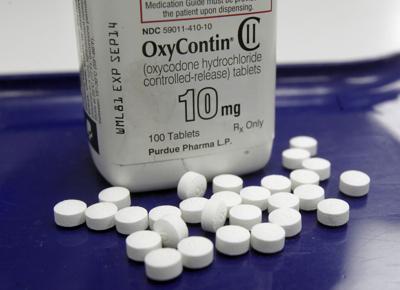COLUMBIA — Doctors prescribing powerful pain pills, such as hydrocodone and oxycodone, in South Carolina will now have to check a state database before prescribing the highly-addictive medication.
Gov. Henry McMaster held a ceremony Tuesday signing a sought-after prescription-monitoring bill into law as state legislators moved to pass next year's budget and finish the 2017 session.
The law mandates that both the names of the prescribing doctor and the receiving patient be identified.
"We have got to know who is getting this, and where the abuse is taking place," McMaster said. "This is a way to stop that."
The signing ceremony was the culmination of a months-long effort for several South Carolina representatives who pushed a slate of policy changes meant to reduce opioid addiction and overdose deaths in the state.
The lawmakers, from some of the hardest addiction-hit regions of the state, successfully advanced several bills that will mandate the use of the prescription monitoring database, permit pharmacies to serve as drop-off locations for unused pain medication and allow people that report overdoses to avoid drug charges in order to save more lives.
Those efforts — led by Reps. Eric Bedingfield, R-Belton, Phyllis Henderson, R-Greenville, and Russell Fry, R-Surfside Beach — come at a time when the overdose death rates related to prescription pills and heroin continue to climb nationally.
"Our goal here is to save lives and protect people," said Bedingfield, who is the chairman of a new House committee studying opioid addiction.
Budget negotiators also voted late last week to contribute $1.5 million of the state's roughly $8 billion spending plan to medication-assisted treatment, which adds to the $6.5 million that the state recently received from the federal government for addiction treatment and prevention.
In South Carolina alone, roughly 565 people died of opioid-related overdoses in 2015, and state officials dealing with the epidemic suspect that number continued to increase last year.
McMaster, a former state attorney general, made no mention of the $1.5 million in state funding that could go towards methadone and suboxone clinics that help individuals get weaned off opioids, but he voiced skepticism of spending more money on treatment programs in the state, which is something Bedingfield and others have talked about.
"I am sure I and others want to do all we can to stop drug abuse, but there is never is enough money to go around for everything," the governor said.







